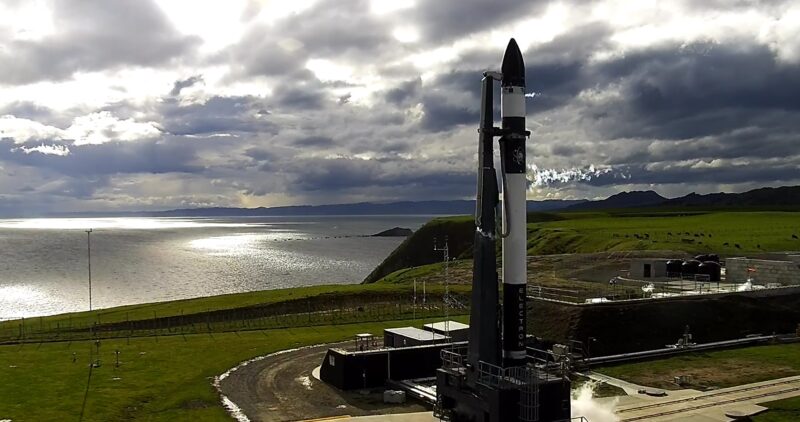Shareholders Approve Rocket Lab SPAC Merger

A Rocket Lab Electron rocket on the pad at Launch Complex 1 ahead of “I Can’t Believe It’s Not Optical” mission. Photo: Rocket Lab
Rocket Lab’s special purpose acquisition company (SPAC) merger is set to close, making Rocket Lab a publicly traded company. Shareholders of Vector Acquisition Corporation approved the SPAC merger with Rocket Lab on Aug. 20.
The business combination is set to close on Aug. 25, and the combined company will be known as Rocket Lab USA, Inc. It is expected to start trading that day on the New York Stock Exchange under the new ticker symbol “RKLB.”
According to a Friday release, the deal is expected to provide Rocket Lab with approximately $777 million, including PIPE financing, before transaction expenses. Less than 3% of Vector Class A ordinary shares chose to redeem shares instead of investing in the combined company. SPACs allow investors to redeem their shares instead of becoming a shareholder of the combined company.
“This significant milestone accelerates our ability to unlock the full potential of space through our launch and spacecraft platforms,” commented Peter Beck, founder and CEO of Rocket Lab. “With the support of public shareholders, I’m excited to build on our established track record of mission success as we continue to transform the way we use and access space.”
Rocket Lab first announced plans to go public in March of this year, along with plans to build a medium-lift rocket called Neutron. The launcher will join the other space companies that have recently gone public through SPAC mergers — smallsat launcher Astra, in-space transportation company Momentus, and remote sensing company Spire Global, and AST SpaceMobile, which is building a satellite-to-cell network.
The SPAC deal values Rocket Lab at $4.1 billion, and the company is targeting aggressive growth to meet that valuation. In 2020, Rocket Lab had $35 million in revenue, expects $69 million in revenue this year, and forecasts more than $1 billion in revenue by 2026 — roughly 60% from launch, and 40% from space systems.
Speaking with Via Satellite earlier this year, Beck said that going public gives Rocket Lab the capital needed to fuel its growth.
“It’s giving us all the access to capital to go after programs like Neutron, but also other strategic directions within space applications and our space systems division,” Beck said in March. “It also gives us the public currency to go and do other deals. We found in the past that not having public currency, it’s very difficult to make significant acquisitions and moves. We tried to do some deals last year as a private company, but when you’re competing with public companies, it’s almost impossible to do the kind of deals you want.”